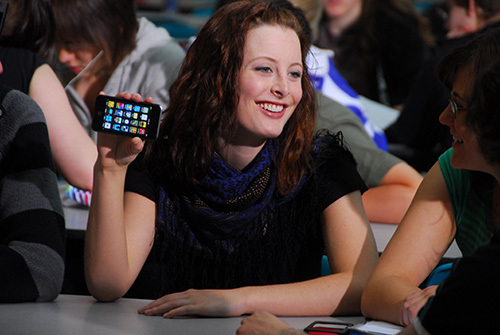
Herr Jeff Johnson, Minister of Education for Alberta, talked to me last November about his experience as co-chair of the province’s pioneering “Inspirierende Bildung” Initiative. The question posed by his steering committee to all Albertans was: What kinds of skills and attributes should an educated Albertan graduating in 2030 have? The response, which became the inspiration for education reform in Alberta, was that students needed to be three things: engaged thinkers, ethical citizens, and they needed to have an entrepreneurial spirit. What role has technology played in helping educators achieve these goals? I decided it was time to invite Jeff back to Die globale Suche nach Bildung series to give us an update.
Prior to his position as Minister of Education for Alberta, Honourable Jeff Johnson was Minister of Infrastructure, Minister responsible for the Oil Sands Secretariat, and Parliamentary Assistant to the Treasury Board. Jeff also has experience working in the financial markets as a futures trading floor pit boss and in building a series of successful small businesses.
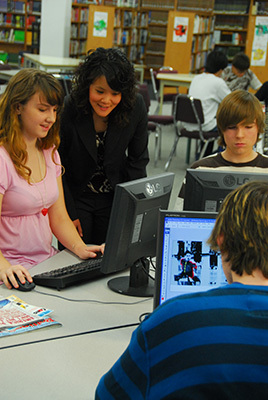
How has technology impacted the Alberta education system? Was wissen Pädagogen, wie die Vor-und Nachteile von einem Lern Standpunkt sehen?
Advances in technology have had a big impact on the world and, infolge, a big impact on our education system as well. Kids today grow up in a world where they have information at their fingertips and education has had to adjust to meet the needs of those students. This is both a challenge and an opportunity for Alberta’s educators.
When we talked with Albertans during the Inspirierende Bildung dialogue, one of the main topics of discussion was technology. Albertans told us that we needed to shift from using technology to support teaching to using technology to support the creation and the sharing of knowledge. A part of that is the development of competencies. We are currently shifting Alberta’s curriculum towards competency-based learning. That means that instead of memorizing facts, kids today are learning skills. Beispielsweise, they are learning how to use knowledge to tell fact from fiction online. This is crucial in an age of Wikipedia – kids need to know how to tell if information is credible, a skill that will be important for their entire lives.
The impact of technology on teaching has also been significant. Teachers today use smart boards, so kids can interact with their lessons. They use digital cameras and laptops, so kids can shoot video and make presentations. And technology allows teachers to tailor lessons to an inclusive environment – providing visual cues for someone with a hearing impairment, beispielsweise, or tailoring lessons for children with autism.
Wie wird die Rolle des Lehrers Änderung im digitalen Zeitalter?
Access to technology and information has forced teachers to think differently about how they plan for learning. Teachers not only have to be users of technology and digital resources, but they have to be keenly aware that students need to understand that information in a digital age needs to be validated. Lehrer müssen ihr Denken aus einer Antwort oder Informationsquelle zur Aufnahme von mehreren Möglichkeiten, sich auf die Antwort mit einer Vielzahl von Informationsquellen verschieben. Es ermöglicht Studierenden, in neue Wissenserzeugung in einer Weise, die nie zuvor möglich gewesen engagieren. Die Lehrer sind nun leichter zugänglich zu Eltern, als sie es jemals in der Vergangenheit, das auch ein anderes Paradigma für Lehrer.
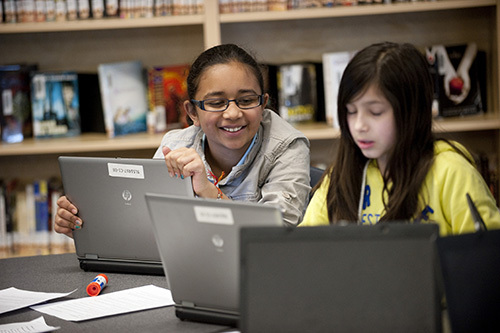
Ganze Staaten in den USA haben, digitale Lehrbücher verabschiedet. Universitätsbibliotheken werden immer Repositories von digitalen Inhalten. Viele würden sagen, Lehrbücher wurden bereits digital gegangen und auch die nächste Generation von digitalen Inhalten ist nicht weit dahinter. What digital learning tools have been implemented in Alberta classrooms and what do educators see as the pros and cons of these?
School authorities are becoming increasingly interested in incorporating technology and digital resources into their classrooms. Through LearnAlberta.ca, Alberta Education has been providing online access to education materials since 2001. This site is host to approximately 8,500 Ressourcen. Materials include teaching and learning resources (some in the form of interactive applets and engaging software) that are directly correlated to programs of study, as well as reference materials, and access to online programs of study and assessment materials. LearnAlberta.ca has seen an increase in the use of digital materials for teachers and students following the Alberta programs of study.
Außerdem, five Alberta school boards are piloting the development of a Collaborative Online Resource Environment (CORE), accessible at http://www.albertacore.ca, to collaboratively acquire, entwickeln, store, manage, and share digital classroom resources for anytime, überall lernen. Miteinander ausgehen, students and teachers enjoy shared access over a common infrastructure to over 165,000 digital resources. Users can contribute resources they find of value, and can comment on effective ways they have used these in learning environments. The University of Calgary is conducting formal research on this innovative project.
In Alberta, school authorities have maximum flexibility to determine what kinds of resources they will make available to their students, and what policies they will put in place to guide the use of these resources. Teachers determine for themselves what level of technology use is most appropriate to meet the needs of their students. Whatever resources teachers and school authorities select, equity of access and support for inclusive classrooms will continue to be guiding priorities in those decisions.
Tablets have been found to be extremely helpful in supporting students with unique learning needs – examples include:
- Increasing font size for dyslexic students – helps to de-clutter their vision
- English Language Learners – can use the recording features to see and hear themselves speaking which helps with language acquisition
- Sign 4 Me app – helps to facilitate communication between a deaf student and his classmates

How has technology impacted curriculum design in Alberta?
Through Curriculum Redesign, we are looking at various shifts for curriculum and curriculum development. One of these shifts is to move to a more digitally based curriculum (programs of study, assessments, and learning and teaching resources).
The power of technology should be harnessed to support innovation and discovery. We envision the move to more digitally-based curriculum will allow for greater flexibility at the local level to support learning at any time, place or pace, as well as the opportunity to continuously improve and refresh programs of study and learning resources.
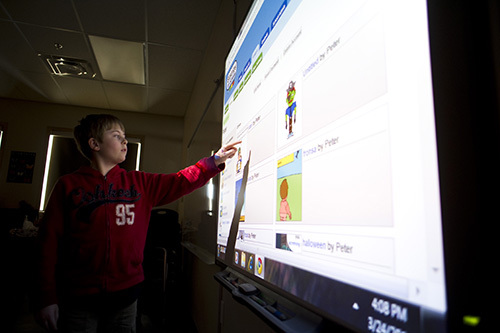
Die neueste Pew Research erneut zeigt, dass die Verwendung von Tabletten, Handys, internet sources and social media platforms such as Facebook and Twitter continues to infiltrate classrooms in the US rapidly. Are you seeing the same trend in Alberta classrooms? Inwieweit ist die Verwendung dieser Tools Teil Ihres Lehrplans? Gibt es eine Alters unter dem Sie glauben, dass diese Tools nicht in Klassenräumen geeignet sind?
Alberta is seeing these same trends. We would say that technology is being used appropriately across all grades because in Alberta we have balanced curriculum that includes a balance of learning activities, with technology and other resources, as well as interaction and daily physical activity.
Alberta Education is currently engaged in a research community of practice that is investigating potential uses of technology, including tablet devices, in Kindergarten to Grade 4 Klassenzimmer. One of the focuses is to explore what applications of technology are most effective and appropriate for various age groups.
There are several school authorities in Alberta that have invested in class or school sets or portable carts of tablet or laptop devices, like Chromebooks, and interest in educational technology continues to increase throughout the education system. Alberta Education is currently working to finalize an updated Learning and Technology Policy Framework to establish a common vision for technology’s role in education, in alignment with Inspirierende Bildung. This vision will help decision makers at all levels take appropriate actions that will complement each other and yield maximum benefit for students.
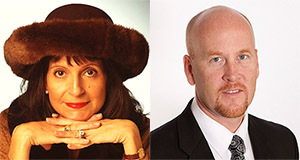
All photos are courtesy of Ministry of Education Alberta.
Weitere Artikel in der Got Tech? Serie: Die globale Suche nach Bildung: Got Tech? – Finnland, Die globale Suche nach Bildung: Got Tech? – Australien, Die globale Suche nach Bildung: Got Tech? – Singapur, Die globale Suche nach Bildung: Got Tech?- Vereinigte Staaten, Die globale Suche nach Bildung: Got Tech? IB Schulen in einer virtuellen Welt, Die globale Suche nach Bildung: Got Tech? – Argentinien
In der globalen Suche nach Bildung, mit mir und weltweit renommierten Vordenkern wie Sir Michael Barber (Vereinigtes Königreich), DR. Michael Block (US-), DR. Leon Botstein (US-), Professor Ton Christensen (US-), DR. Linda Hammond-Liebling (US-), DR. Madhav Chavan (Indien), Professor Michael Fullan (Kanada), Professor Howard Gardner (US-), Professor Andy Hargreaves (US-), Professor Yvonne Hellman (Niederlande), Professor Kristin Helstad (Norwegen), Jean Hendrickson (US-), Professor Rose Hipkins (Neuseeland), Professor Cornelia Hoogland (Kanada), Herr Jeff Johnson (Kanada), Frau. Chantal Kaufmann (Belgien), DR. Eija Kauppinen (Finnland), Staatssekretär Tapio Kosunen (Finnland), Professor Dominique Lafontaine (Belgien), Professor Hugh Lauder (Vereinigtes Königreich), Professor Ben Levin (Kanada), Herr Ken Macdonald (Vereinigtes Königreich), Professor Barry McGaw (Australien), Shiv Nadar (Indien), Professor R. Natarajan (Indien), DR. PAK NG (Singapur), DR. Denise Papst (US), Sridhar Rajagopalan (Indien), DR. Diane Ravitch (US-), Richard Wilson Riley (US-), Sir Ken Robinson (Vereinigtes Königreich), Professor Pasi Sahlberg (Finnland), Professor Manabu Sato (Japan), Andreas Schleicher (PISA, OECD), DR. Anthony Seldon (Vereinigtes Königreich), DR. David Shaffer (US-), DR. Kirsten Sivesind (Norwegen), Kanzler Stephen Spahn (US-), Yves Theze (Lycee Francais US-), Professor Charles Ungerleider (Kanada), Professor Tony Wagner (US-), Sir David Watson (Vereinigtes Königreich), Professor Dylan Wiliam (Vereinigtes Königreich), DR. Mark Wormald (Vereinigtes Königreich), Professor Theo Wubbels (Niederlande), Professor Michael Young (Vereinigtes Königreich), und Professor Zhang Minxuan (China) wie sie das große Bild Bildung Fragen, die alle Nationen heute konfrontiert erkunden. Die Global Search for Education Community-Seite
C. M. Rubin ist der Autor von zwei weit Lese Online-Serie für den sie eine 2011 Upton Sinclair Auszeichnung, “Die globale Suche nach Bildung” und “Wie werden wir gelesen?” Sie ist auch der Autor von drei Bestseller-Bücher, Inklusive The Real Alice im Wunderland.


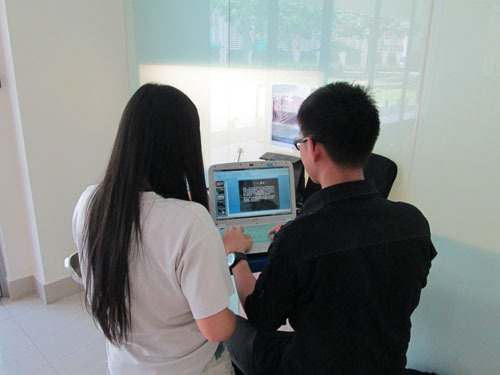
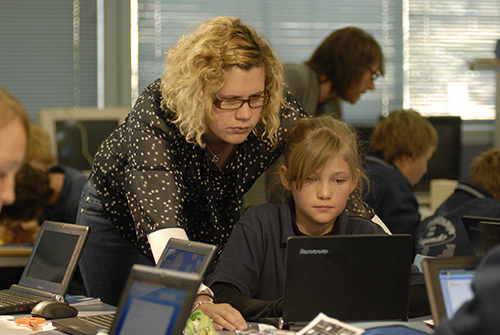
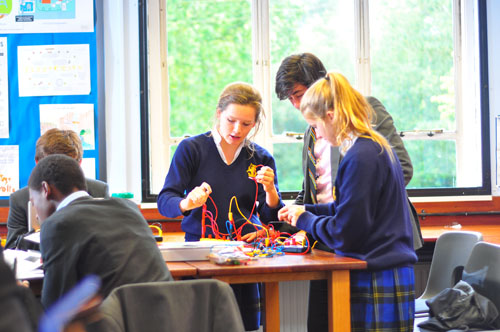
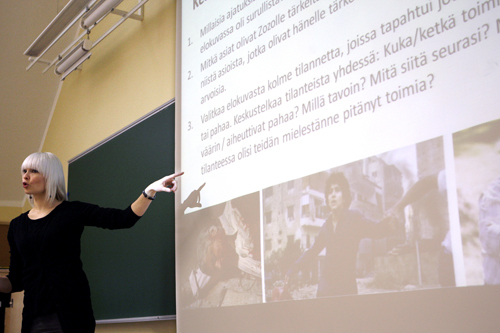
Jüngste Kommentare